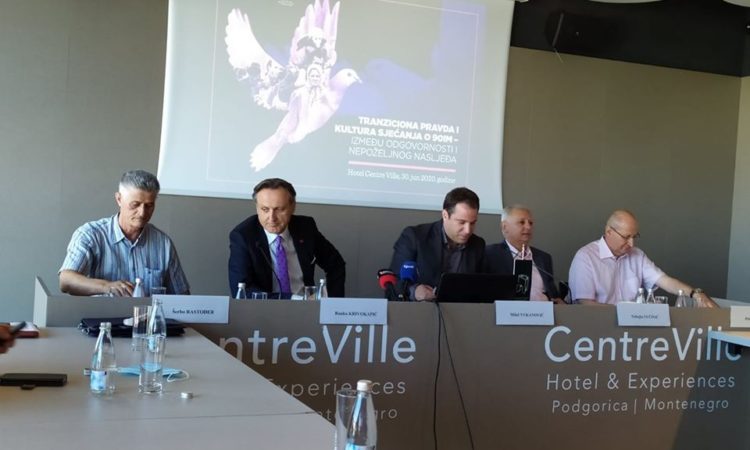Although compared to the surrounding countries, Montenegro has a relatively small war legacy during the 90s, war crimes such as the attack on Dubrovnik, deportation, Bukovica, the Strpci case, Kaludjerski laz, Lore, missing Montenegrin reservists, Murino, but also persecution on political and on a national basis, war propaganda and similar, left a deep mark on Montenegrin society after the 90s. This is still felt to some extent, it was said today at the end of the project “By transitional justice to multiculturalism”, organized by the Center for Civic Education (CCE).
Minister of Human and Minority Rights Mehmed Zenka said that the project is an opportunity to further improve understanding of human and minority rights and the development of interculturalism in Montenegro.
He said that this project, which was supported by the Ministry of Human and Minority Rights, also contributes to the implementation of the policy of the Government of Montenegro in the field of promoting equality and respect for the rights of minority people and other minority national communities in Montenegro. Zenka said that Montenegro needs a process of transitional justice that will focus on the challenges that societies in transition face when it comes to fighting the legacy of mass human rights violations.
The greatest wealth of Montenegro, along with the restoration of independence, is that all its citizens can look at each other freely and without shame in their eyes, that they have nothing to be ashamed of, said Zenka.
According to the Public Competition for financing NGO projects / programs in the field of protection and promotion of minority rights, the Ministry of Human and Minority Rights last year supported 27 projects with almost 360,000 euros, Zenka pointed out.
Daliborka Uljarevic, executive director of the Center for civic education, pointed out in her introductory speech that the findings of a wide range of public opinion in terms of transitional justice conducted by CCE in early March this year show that citizens, although aware of war crimes in the 90s and after a quarter of a century are not ready to talk specifically about these developments, which is a consequence of the definite lack of dialogue and refusal to face controversial issues.
At the round table that followed on the topic “Transitional justice and cultural memories of the 90s – between responsibility and undesirable heritage”, Academician CANU and university professor Dr. Sherbo Rastoder, professor at the Faculty of Law of UCG and former judge of the European Court of Human Rights in Strasbourg Nebojsa Vucinic, politician and honorary president of the SDP Ranko Krivokapic and analyst Rade Bojovic had their presentations.

